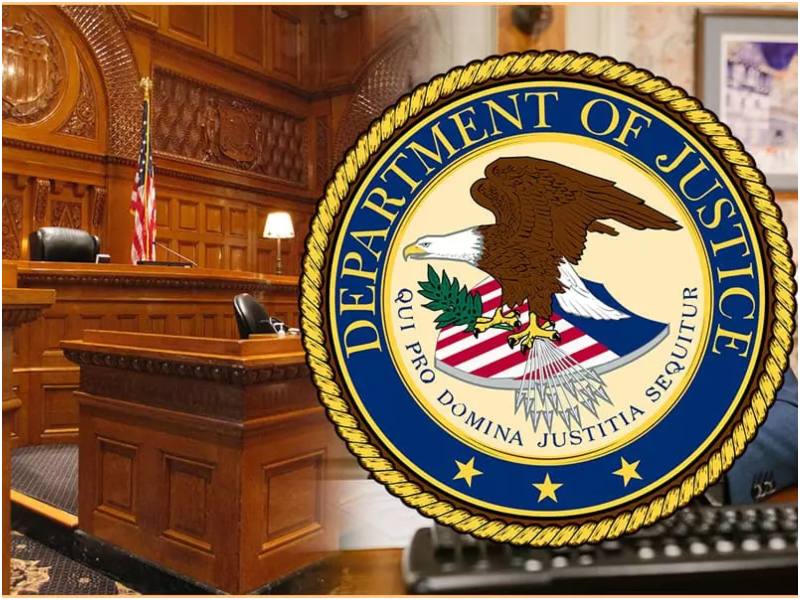The U.S. Department of Justice (DOJ) has suspended senior immigration attorney Erez Reuveni following his courtroom admission that the government unlawfully deported Kilmar Armando Abrego Garcia, a Salvadoran national protected from removal under a final immigration order.
The rare public suspension comes amid intense legal scrutiny over the DOJ’s handling of the case, which a federal judge called a “conscience-shocking” violation of due process.
Reuveni, who until recently served as Deputy Director of the DOJ’s Office of Immigration Litigation, admitted in open court that Garcia’s deportation to El Salvador violated a 2019 Board of Immigration Appeals (BIA) order granting Garcia “withholding of removal” status under the Convention Against Torture.
That designation legally barred the U.S. government from deporting Garcia to a country where he faced a clear probability of persecution—in this case, at the hands of the transnational gang Barrio 18, which had repeatedly threatened his life.
Garcia fled El Salvador in 2019 after gang threats forced his family to relocate multiple times.
Though U.S. Immigration and Customs Enforcement (ICE) was legally prohibited from deporting him, officers nonetheless detained Garcia without a warrant or notice, and deported him to CECOT, El Salvador’s controversial mega-prison known for detaining suspected gang members in dangerous and inhumane conditions.
Judge Xinis Orders Garcia’s Return, Blasts DOJ Conduct

In a blistering ruling issued Sunday, U.S. District Judge Paula Xinis ordered the federal government to return Garcia to the United States, describing the deportation as a flagrant due process violation under the Fifth Amendment.
The judge criticized DOJ attorneys for their inaction and failure to rectify the illegal deportation, noting the government’s lack of transparency and disregard for judicial orders.
“Defendants effectuated [Garcia’s] detention in one of the most notoriously inhumane and dangerous prisons in the world,” Judge Xinis wrote. “The risk of harm shocks the conscience.”
Garcia was housed in a cell with members of Barrio 18, the very gang he sought protection from—a move Judge Xinis described as “intentional” and “part of a well-orchestrated mission to use CECOT as a form of punishment and deterrence.”
Judge Xinis’s Sunday order followed a preliminary injunction she issued Friday, requiring the U.S. government to facilitate Garcia’s return. The DOJ’s request to stay the injunction while it appealed to the Fourth Circuit Court of Appeals was denied.
DOJ Faces Internal Fallout
In response to Reuveni’s admissions, the DOJ suspended him for failing to “zealously advocate on behalf of the United States,” a central duty under the agency’s litigation policy. Reuveni had only recently been promoted in October. His supervisor, August Flentje, has also been placed on administrative leave.
Legal experts note that Reuveni’s candid statements to the court—while ethically commendable—highlight the internal tension between the DOJ’s duty to pursue justice and the Trump-era policies that allegedly prioritized immigration enforcement over legal compliance.
During a court exchange, Judge Xinis asked Reuveni why the U.S. government couldn’t simply retrieve Garcia from El Salvador. His response was telling:
MR. REUVENI: “When this case landed on my desk, the first thing I did was ask my clients that very question. I’ve not received, to date, an answer that I find satisfactory.”
The DOJ has not publicly commented on the suspensions or whether disciplinary proceedings are forthcoming.
Broader Legal Implications
Garcia’s case underscores ongoing concerns about constitutional violations in U.S. immigration enforcement, especially in cases where the government fails to comply with final immigration orders.
Civil rights advocates are calling for a broader inquiry into deportation practices and the apparent breakdown in inter-agency coordination between DHS, ICE, and the DOJ.
Garcia, who remains detained in El Salvador, faces a court-mandated deadline for return to the U.S. by 11:59 p.m. Monday, though the DOJ continues to challenge the order at the appellate level.

